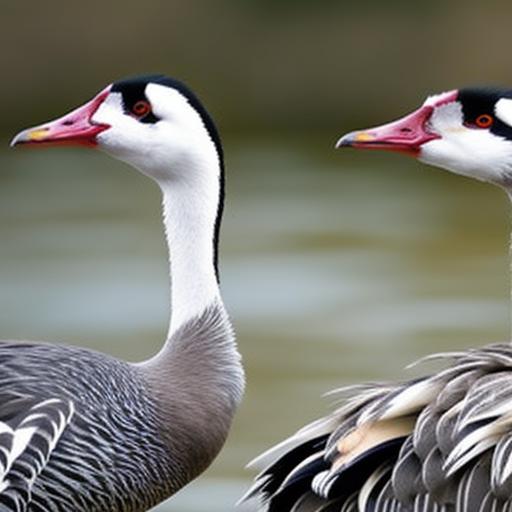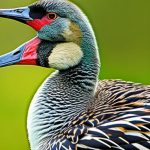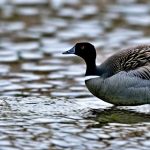Chinese geese are a popular breed of domesticated geese that are known for their distinctive appearance and excellent egg-laying abilities. There are several different breeds of Chinese geese, each with its own unique characteristics and traits. The most common breeds of Chinese geese include the White Chinese, Brown Chinese, and the African Chinese. The White Chinese is the most popular breed and is known for its pure white feathers and orange bill and feet. The Brown Chinese, on the other hand, has a brown plumage with a darker bill and feet. The African Chinese is a larger breed with a more upright stance and a distinctive knob at the base of its bill. Each breed has its own specific traits and characteristics, so it’s important to understand the differences between them when selecting breeding stock.
Selecting the Right Breeding Stock for Chinese Geese
When it comes to breeding Chinese geese, selecting the right breeding stock is crucial for producing healthy and productive offspring. When choosing breeding stock, it’s important to look for birds that are healthy, active, and free from any genetic defects or deformities. It’s also important to select birds that have good conformation and meet the breed standards for their specific breed. Additionally, it’s important to consider the age and reproductive history of the birds when selecting breeding stock. Older birds may have a decreased fertility rate, while younger birds may not have reached sexual maturity yet. By carefully selecting breeding stock, you can ensure that your Chinese geese breeding program is off to a strong start.
Creating the Ideal Breeding Environment for Chinese Geese
Creating the ideal breeding environment for Chinese geese is essential for successful breeding and egg production. Chinese geese are hardy birds that can adapt to a variety of environments, but they thrive in a well-ventilated and spacious area with access to fresh water and a balanced diet. When it comes to housing, Chinese geese require a secure and predator-proof enclosure that provides protection from the elements and ample space for nesting and mating. It’s also important to provide nesting boxes or areas for the geese to lay their eggs, as well as access to clean water for bathing and drinking. By creating a comfortable and stress-free environment for your Chinese geese, you can encourage natural mating behaviors and increase the likelihood of successful breeding.
Nutritional Needs for Successful Chinese Geese Breeding
Proper nutrition is essential for successful Chinese geese breeding, as it directly impacts the health and reproductive capabilities of the birds. Chinese geese require a balanced diet that includes a combination of grains, greens, and protein to support their growth, egg production, and overall health. A high-quality commercial poultry feed can provide the essential nutrients and vitamins that Chinese geese need for successful breeding. Additionally, supplementing their diet with fresh greens, such as grass, lettuce, and spinach, can provide additional nutrients and help stimulate egg production. It’s also important to provide access to clean water at all times, as dehydration can negatively impact egg production and fertility. By providing a well-rounded and nutritious diet, you can support the breeding efforts of your Chinese geese and ensure the health and vitality of the offspring.
Understanding the Reproductive Behavior of Chinese Geese
Understanding the reproductive behavior of Chinese geese is essential for successful breeding and egg production. Chinese geese are known for their strong mating instincts and can be prolific egg layers when provided with the right conditions. During the breeding season, male geese will often display aggressive and territorial behavior as they compete for the attention of the females. It’s important to provide ample space and separate nesting areas to prevent fighting and ensure that each female has access to a suitable mate. Female geese will typically lay a clutch of eggs in a secluded nesting area and will fiercely defend their nest from potential threats. By understanding the natural mating and nesting behaviors of Chinese geese, breeders can provide the necessary support and resources to encourage successful breeding and egg production.
Tips for Incubating and Hatching Chinese Goose Eggs
Incubating and hatching Chinese goose eggs is a critical step in the breeding process and requires careful attention and monitoring. Once the eggs have been laid, they should be collected and placed in a clean and well-maintained incubator with a consistent temperature and humidity level. Chinese goose eggs typically require an incubation period of around 28-30 days before they hatch. During this time, it’s important to regularly monitor the temperature and humidity levels in the incubator to ensure that the eggs are developing properly. It’s also important to handle the eggs with care and avoid any sudden movements or disturbances that could impact the development of the embryos. Once the eggs begin to hatch, it’s important to provide a warm and safe environment for the goslings to dry off and gain their strength before introducing them to the rest of the flock. By following these tips for incubating and hatching Chinese goose eggs, breeders can increase the likelihood of a successful hatch and the healthy development of the goslings.
Managing the Health and Well-being of Breeding Chinese Geese
Managing the health and well-being of breeding Chinese geese is essential for ensuring the success of the breeding program and the overall vitality of the birds. Chinese geese are generally hardy and resilient, but they can be susceptible to certain health issues, such as respiratory infections, parasites, and nutritional deficiencies. It’s important to provide regular health checks and vaccinations to prevent the spread of disease and maintain the overall health of the flock. Additionally, providing a clean and well-maintained living environment, access to fresh water, and a balanced diet can help support the health and well-being of breeding Chinese geese. By monitoring the health of the birds and providing proactive care, breeders can ensure that their Chinese geese are in optimal condition for successful breeding and egg production.
Identifying and Addressing Common Breeding Challenges in Chinese Geese
Breeding Chinese geese can come with its own set of challenges, and it’s important for breeders to be prepared to address these issues as they arise. One common challenge in breeding Chinese geese is low fertility rates, which can be caused by a variety of factors, including age, genetics, and environmental stress. To address this issue, breeders can carefully select breeding stock, provide a stress-free environment, and ensure that the birds are receiving a balanced diet to support their reproductive capabilities. Another common challenge is egg infertility, which can be caused by poor nutrition, disease, or inadequate nesting conditions. By identifying and addressing these common breeding challenges, breeders can take proactive measures to support the breeding efforts of their Chinese geese and increase the likelihood of successful egg production.
Maximizing Fertility and Egg Production in Chinese Geese
Maximizing fertility and egg production in Chinese geese requires careful management and attention to the breeding program. To maximize fertility, breeders can provide a balanced diet, ample space for mating, and a stress-free environment to encourage natural mating behaviors. It’s also important to monitor the health and reproductive capabilities of the breeding stock and make adjustments as needed to support optimal fertility. Additionally, providing suitable nesting areas and access to clean water can help maximize egg production and ensure the health and viability of the eggs. By taking proactive measures to maximize fertility and egg production, breeders can increase the success of their Chinese geese breeding program and produce healthy offspring.
Marketing and Selling Chinese Geese for Profit
Once the breeding program has been successful and healthy goslings have been hatched, breeders can consider marketing and selling their Chinese geese for profit. Chinese geese are popular for their meat, eggs, and down feathers, making them a valuable commodity for small-scale farmers and homesteaders. By marketing their Chinese geese through local farmers’ markets, online platforms, and word-of-mouth, breeders can attract potential buyers and generate income from their breeding efforts. Additionally, offering value-added products, such as processed meat and down feathers, can further increase the profitability of selling Chinese geese. By effectively marketing and selling their Chinese geese, breeders can not only recoup their investment in the breeding program but also generate a sustainable source of income for their farm or homestead.
Meet Walter, the feathered-friend fanatic of Florida! Nestled in the sunshine state, Walter struts through life with his feathered companions, clucking his way to happiness. With a coop that’s fancier than a five-star hotel, he’s the Don Juan of the chicken world. When he’s not teaching his hens to do the cha-cha, you’ll find him in a heated debate with his prized rooster, Sir Clucks-a-Lot. Walter’s poultry passion is no yolk; he’s the sunny-side-up guy you never knew you needed in your flock of friends!







